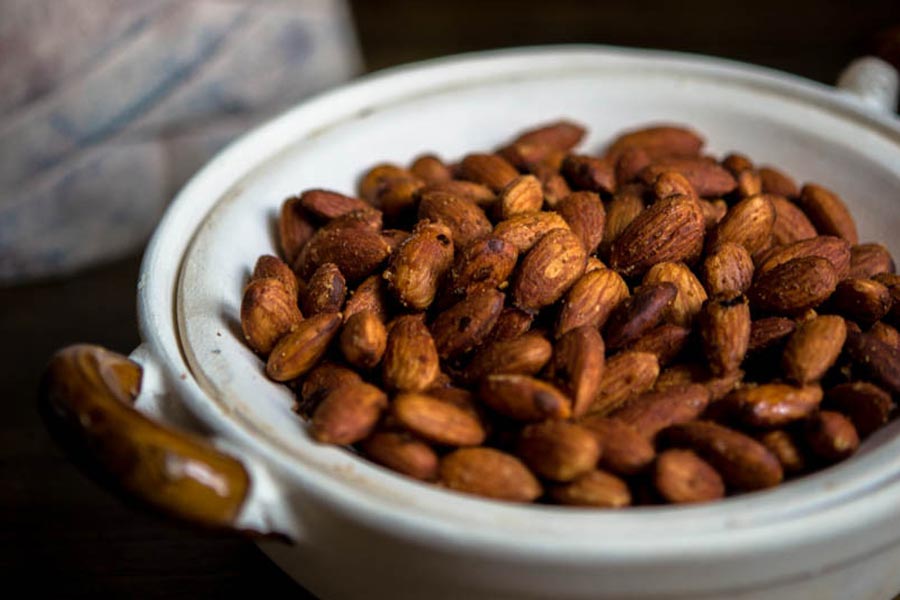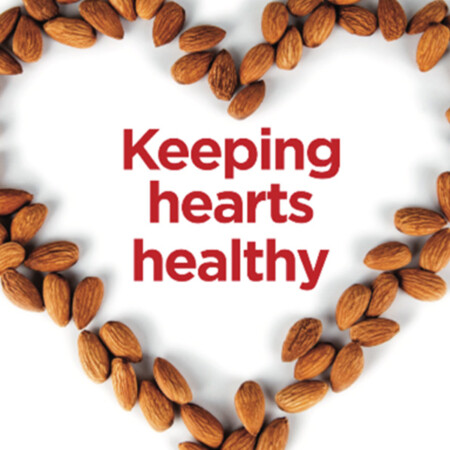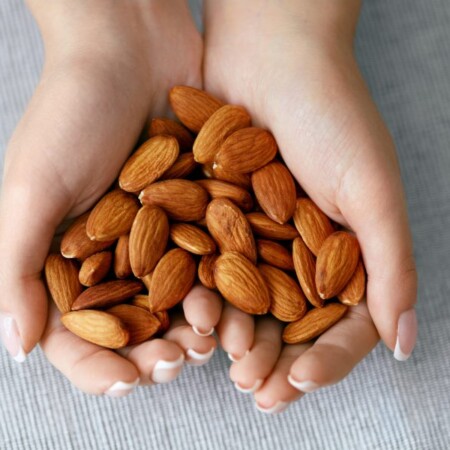Almonds and Plant Protein
The benefits of a diet high in plant foods are clear: less risk of disease and improved health and well-being.

I am sure you have heard that if we eat more plant foods it will be better for our health. This would have started with your mum telling you to eat your vegetable when growing up, but it is more than just vegetables, it includes grains, cereals, legumes, seeds and nuts such as almonds too. You might think the reason is for their vitamins and minerals; I bet you didn’t think the benefits also involve the protein they provide. Research tells us that eating patterns in which plants take centre stage are associated with lowering the risk of type 2 diabetes, cardiovascular disease (includes heart disease, stroke), high blood pressure, obesity and related deaths all amongst the biggest health issues we face.[1]
When more than 50% of the protein in a diet comes from plants instead of animal sources research shows a reduced risk of disease, particularly relating to cholesterol and triglyceride levels; both markers associated with cardiovascular disease risk. The Adventist Health Study 2, of more than 81,000 US-based adults, found protein from ‘nuts and seeds,’ was associated with a 40 per cent lowered risk of Cardio vascular disease mortality and a 60 per cent reduction in young adults (25-44 years). The same associations were not found for protein from ‘grains’, ‘legumes, fruits and vegetables’ or ‘processed foods’, suggesting that nuts and seeds are unique among the sources of plant protein.[2]
Nuts generally have the highest total protein content among common sources of plant protein, including grains, legumes and soy (excluding pumpkin and sunflower seeds). A healthy handful of almonds-(30g) contains 5.9g protein or 19.7g protein per 100g (Figures from AUSNUT 2011-13 AHS Food Nutrient Database). This is an easy way to increase your protein intake each day.
Increase your plant protein ideas
There are plenty of ways you can increase your plant protein and swap some animal protein out.
- Reduce the serving size of meat in a stir fry and add in that amount of almonds
- Reduce the meat serving in bolognaise or chilli con carne and add in more legumes e.g. kidney beans
- Swap delicatessen meat in your sandwich for marinated tofu or almond butter spread
- Add in half a cup of almond meal to your hamburger mince mix
- Add in some lentils to a curry or soup
- Include a variety of nuts and seeds including almonds on your cheese or anti-pasta platter
Plant protein benefits the environment
The EAT-Lancet Commission on Food, Planet and Health reports that to achieve dietary recommendations for improved human and planetary health, global intake of nuts (along with vegetables, fruits, legumes and whole grains) needs to double from current levels and that of red meat needs to halve.[3] This is not an all or nothing change. Small reductions in animal foods and increases in plant foods will make a big difference to human and planetary health.
These are a lot of good reasons to eat more plants and it is not suggesting everyone needs to become vegetarian, it is a diet abundant in plant foods with smaller amounts of animal foods than many of us are accustomed to. Take the challenge and see how many plant foods you can include in your diet, remembering your healthy handful of almonds each day!
References
1: Lonnie M., Johnstone AM. The public health rationale for promoting plant protein as an important part of a sustainable and healthy diet. Nutrition Bulletin, 2020. 45:281-93
2: Tharrey M., et al. Patterns of plant and animal protein intake are strongly associated with cardiovascular mortality: The Adventist Health Study-2 cohort. Int J Epidemiol, 2018. 47(5):1603-12
3: Willet WW., et al. Food in the Anthropocene: the EAT–Lancet Commission on healthy diets from sustainable food systems. The Lancet Commissions, 2019. 393(10170):447- 92



